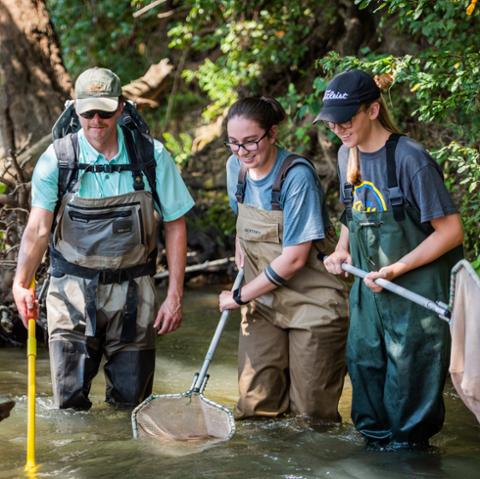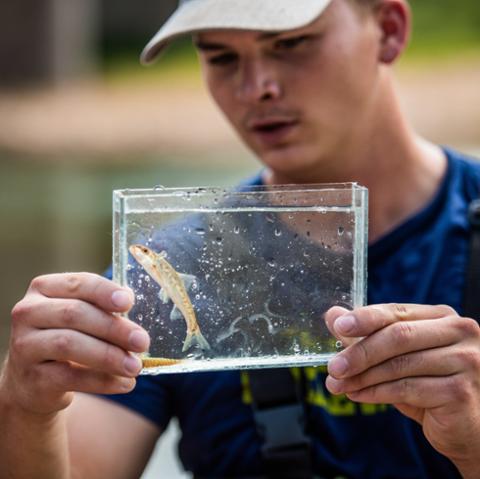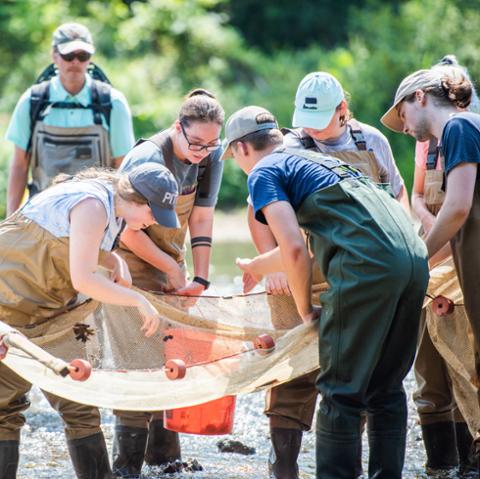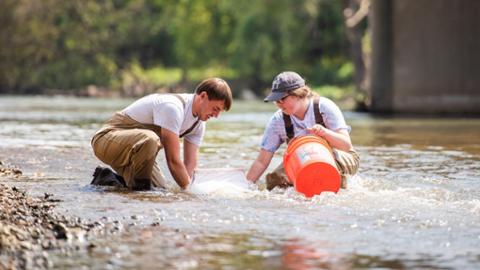Fisheries and Aquatic Sciences
Major in Biology with an Emphasis in Fisheries and Aquatic SciencesBalancing conservation and harvest in aquatic environments.
Explore the biodiversity of aquatic ecosystems and discover the importance of environmental preservation and protection.
The Fisheries and Aquatic Sciences emphasis focuses on the aquatic ecosystems of:
- Rivers
- Lakes
- Wetlands

Our program offers numerous field-based courses where students visit local creeks, lakes, and wetlands.

Learn how to address complex issues such as overfishing, habitat degradation, pollution, and climate change.

Gain practical skills in fish sampling, habitat assessment, water quality analysis, and data collection techniques.
Hands-on learning in aquatic habitats
Students in this program work alongside professional biologists on a wide range of projects focused on important environmental issues such as:
-
Disease: Students collaborate with professional biologists to investigate and address the impact of diseases on aquatic ecosystems, developing strategies for prevention and control.
-
Pollution: Engaging in hands-on projects, students contribute to the assessment and mitigation of pollution in aquatic environments, emphasizing sustainable practices and restoration efforts.
-
Preservation: Working alongside experienced biologists, students focus on preserving biodiversity and protecting critical habitats, contributing to the conservation of aquatic species and ecosystems.
-
Restoration: Students actively participate in restoration projects, learning to implement techniques that revitalize degraded aquatic ecosystems, ensuring long-term ecological health and balance.
Aquatic environments act as filters for pollutants, and their health is a reflection of the surrounding land and air quality. Collect critical data that can determine management strategies for our local water masses.
Careers for Fisheries and Aquatic Science emphasis graduates
Careers in fisheries offer graduates diverse opportunities, where professionals actively engage in research, management, and conservation to ensure sustainable practices and the well-being of aquatic ecosystems.
- Environmental Science: Apply ecological principles to analyze and address environmental challenges.
- Aquatic Science: Conduct research, analyze data, and implement strategies for the sustainable management of aquatic ecosystems.
- Marine Biology: Investigate marine life, ecosystems, and biodiversity through research and fieldwork.
- Natural Resources: Manage and conserve natural resources, balancing ecological sustainability with human needs.
Many of our graduates become aquatic scientists for state and federal resource agencies.
Additional information
Biology - Fisheries & Aquatic Sciences Degree Map download
Catalog – see catalog for the School of Science and Mathematics
